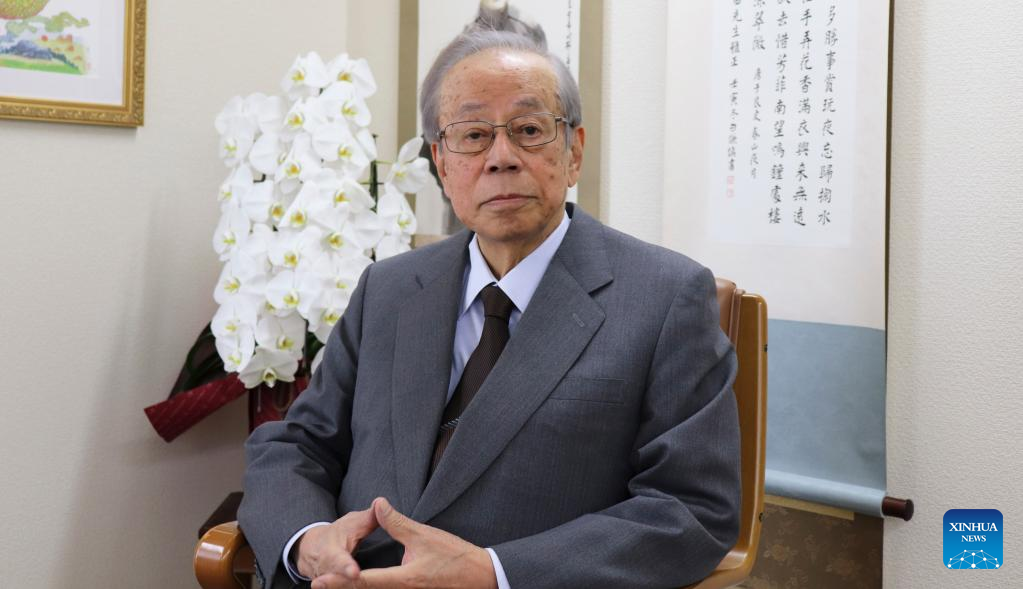
Former Japanese Prime Minister Yasuo Fukuda takes an interview with Xinhua in Tokyo, Japan, on Nov. 25, 2022. (Xinhua/Yang Guang)
TOKYO, Nov. 27 (Xinhua) -- To commemorate the 50th anniversary of the normalization of diplomatic relations between Japan and China, former Japanese Prime Minister Yasuo Fukuda in September published his new book Collected Works of Yasuo Fukuda: Pursuing World Peace and will release a Chinese version.
Fukuda told Xinhua in a recent interview that a community with a shared future for mankind is the keyword of the book, and he hoped that Japan and China will join hands to become the backbone of building a community with a shared future for mankind.
A compilation of Fukuda's speeches over the years, the book records and represents Fukuda's reflections on Japan-China relations and the two countries' relationship with Asia and the world, pointing out the need to build a community with a shared future for mankind to meet global challenges.
Fukuda said he fully agrees with China's vision of building a community with a shared future for mankind, arguing that if one country is doing well only by itself when its neighbors are not, the imbalance will lead to conflicts that will then backfire on itself.
Only when world peace is maintained can a country's development enjoy a secure and stable environment, he added.
Maintaining peaceful and stable relations between Japan and China is not only of great importance to Asia but will also have a positive impact on Europe, the Middle East, and other parts of the world, Fukuda said.
In 1978, China and Japan signed the treaty of peace and friendship when then prime minister Takeo Fukuda, Yasuo Fukuda's father, actively supported and promoted its adoption during his tenure.
Next year will mark the 45th anniversary of the signing of the China-Japan Treaty of Peace and Friendship. Fukuda said that only when the two countries understand each other can they generate mutual trust.
The two countries should follow the principle of seeking common ground while shelving differences and make unremitting efforts to reflect on how to achieve the goal of peace and stability of bilateral relations, he said.
Fukuda led the establishment of a cultural exchange institution for an Asian community in a bid to promote the deepening of cultural exchanges between the people of Japan and China in a wider range of cultural fields with youth as the center.
He believes that to deepen mutual understanding between the two peoples, cooperation in the political and economic fields is undoubtedly crucial, but strengthening cultural exchanges is also very important. ■



